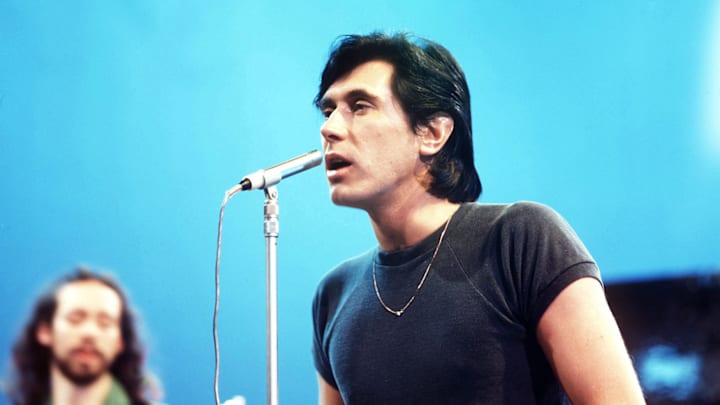The 1970s was so expansive as far as new great music that some artists are not listened to as much today as they should be. All of the following musical artists do - and should - have some die-hard fans. They simply do not have as many as they should.
All of the following artists also helped influence a large number of other important artists. One in particular helped form glam rock and punk. Another helped create the Britpop sound.
All of the artists below have decently sized catalogs worth exploring deeply. They each have such a vast amount of good songs that you might find your favorite is different than what most others think. Simply put, these pop artists deserve more love currently than they get.
Four pop artists from the 1970s who deserve more love than they receive
Richard Thompson
Thompson got his start with the Fairport Convention in the late 1960s, but he left the folk-rock group in 1971 and it is a good thing he did. His singular brilliant songwriting was able to stand out more and his way with melodies was able to be fully appreciated. His 1973 album with then-wife Linda, I Want to See the Bright Lights Tonight, is one of the best albums of the early 1970s.
One reason he might not have become a more popular artist was that his lyrics were rather bleak. In fact, had he been so inclined and was just beginning to make music in the late 1970s, he might have been one of the most influential post-punk artists. His philosophy appeared to fit perfectly with that subgenre, though his sound did not. The title track to I Want to See the Bright Lights Tonight is so amazingly strong melodically and acoustically heavy that it truly is a folk song that wants to grow up and be a metal track.
Wire
Possibly the issue with Wire is they were so good as so many different things that they never seemed to pinpoint any one sound for very long. They were at times post-punk - think a slightly happier Joy Division - and art punk. There is little doubt their sound heavily influenced Britpop bands such as Blur. Their song, "Outdoor Miner," sounds much like early Blur.
There was a high level of intellectualism that went into their albums as well. That might have been one of the reasons they bounced in their sound a bit; they became a bit restless from forming new ideas. Their influence on music is quite broad. Robert Smith said he was so inspired by Wire that the Cure's own sound was forever changed after they made the first record in more of an attempt to do something akin to Wire.
Roxy Music
Roxy Music will, like every other musical artist on this list, have their devout followers who will never understand why their music is not heard as much as some other artists. The group was popular, but only to a degree. Their music was easy to listen to but also slightly off from pop enough to feel dangerous. Led by vocalist Bryan Ferry, Roxy Music helped inspire subgenres such as glam rock and punk even though they never strayed into punk itself.
The gift of the band was that they could incorporate different influences and produce music that was uniquely their own. There was a touch of Motown, a bit of Kinks, and a heavy dose of the Velvet Underground. The group has a massive amount of wonderful singles but 1972's "Editions of You" is a volcanic art rock track while 1974's "Three and Nine" is a much more mellow song that borrows from jazz and country and somehow makes it work.
Warren Zevon
Zevon was always a talented songwriter, but he did not get much acclaim for his own work early in the 1970s. With the help of friends such as Jackson Browne, Linda Ronstadt, and Stevie Nicks, he began to emerge as one of the better singer-songwriters of the decade, though he never reached the commercial success of his pals.
Somewhat unfortunately, Zevon's early work might have been overshadowed by his song, "Werewolves of London." The song is more gimmicky than his other, more substantial work. "Hasten Down the Wind" from Zevon's debut record in 1976 is a heartbreaking song about a breakup. Zevon always had keen insight into human emotions and went through rocky personal times himself. He will never be as well-known as Fleetwood Mac or Jim Croce, but he should.
